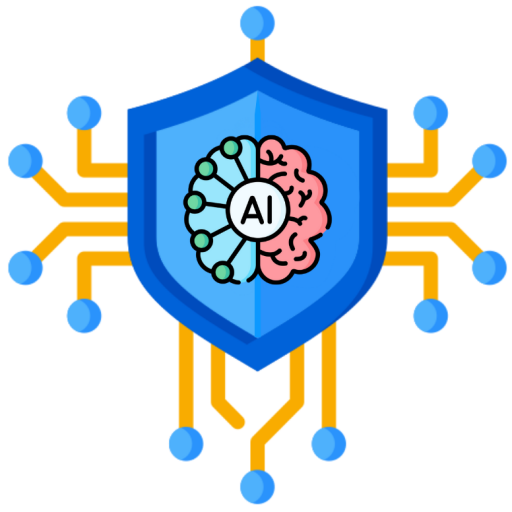Volume no :
|Issue no :
Article Type :
Author :
Mr.Sidharth SharmaPublished Date :
Publisher :
Page No: 7 - 12
Abstract : Hybrid cloud environments combine private and public cloud infrastructures to optimize security, scalability, and cost-effectiveness. However, ensuring secure access control in such environments remains a critical challenge due to dynamic workloads, multi-tenancy, and cross-cloud authentication complexities. This paper explores access control models tailored for secure hybrid cloud deployment, focusing on Role-Based Access Control (RBAC), Attribute-Based Access Control (ABAC), and emerging Zero Trust principles. We analyze their effectiveness in mitigating unauthorized access, privilege escalation, and insider threats. Additionally, a novel hybrid model integrating RBAC and ABAC is proposed to enhance security and flexibility while ensuring compliance with regulatory frameworks. The study also highlights the role of federated identity management and blockchain-based access control mechanisms in strengthening authentication and authorization in hybrid cloud environments. The results indicate that adaptive access control strategies can significantly enhance security without compromising performance. Future research should focus on AI-driven access control mechanisms and self-learning security models to further improve dynamic access control in hybrid cloud settings.
Keyword Multi-cloud security, cloud computing, authentication, risk mitigation, IAM, compliance, zero-trust, encryption, network security, threat detection.
Reference:
- Jasper Gnana Chandran, J., Karthick, R., Rajagopal, R., & Meenalochini, P. (2023). Dual-channel capsule generative adversarial network optimized with golden eagle optimization for pediatric bone age assessment from hand X-ray image. International Journal of Pattern Recognition and Artificial Intelligence, 37(02), 2354001.
- Karthick, R., Prabha, M., Sabapathy, S. R., Jiju, D., & Selvan, R. S. (2023, October). Inspired by social-spider behavior for microwave filter optimization, swarm optimization algorithm. In 2023 International Conference on New Frontiers in Communication, Automation, Management and Security (ICCAMS)(Vol. 1, pp. 1-4). IEEE.
- Vijayalakshmi, S., Sivaraman, P. R., Karthick, R., & Ali, A. N. (2020, September). Implementation of a new Bi-Directional Switch multilevel Inverter for the reduction of harmonics. In IOP Conference Series: Materials Science and Engineering(Vol. 937, No. 1, p. 012026). IOP Publishing.
- Kiruthiga, B., Karthick, R., Manju, I., & Kondreddi, K. (2024). Optimizing harmonic mitigation for smooth integration of renewable energy: A novel approach using atomic orbital search and feedback artificial tree control. Protection and Control of Modern Power Systems, 9(4), 160-176.
- Sulthan Alikhan, J., Miruna Joe Amali, S., & Karthick, R. (2024). Deep Siamese domain adaptation convolutional neural network-based quaternion fractional order Meixner moments fostered big data analytical method for enhancing cloud data security. Network: Computation in Neural Systems, 1-28.
- Sakthi, P., Bhavani, R., Arulselvam, D., Karthick, R., Selvakumar, S., & Sudhakar, M. (2022, September). Energy efficient cluster head selection and routing protocol for WSN. In AIP Conference Proceedings(Vol. 2518, No. 1). AIP Publishing.
- Aravindaguru, I., Arulselvam, D., Kanagavalli, N., Ramkumar, V., & Karthick, R. (2022, September). Space cloud in cubesat-Consigning expert system to space. In AIP Conference Proceedings(Vol. 2518, No. 1). AIP Publishing.
- Karthick, R., Prabaharan, A. M., & Selvaprasanth, P. (2019). A Dumb-Bell shaped damper with magnetic absorber using ferrofluids. International Journal of Recent Technology and Engineering (IJRTE), 8.
- Selvan, R. S., Wahidabanu, R. S. D., Karthick, B., Sriram, M., & Karthick, R. (2020). Development of Secure Transport System Using VANET. TEM (H-Index), 82.
- Karthick, R., & Sundararajan, M. (2018). Optimization of MIMO Channels Using an Adaptive LPC Method. International Journal of Pure and Applied Mathematics, 118(10), 131-135.
- Lopez, S., Sarada, V., Praveen, R. V. S., Pandey, A., Khuntia, M., & Haralayya, D. B. (2024). Artificial intelligence challenges and role for sustainable education in india: Problems and prospects. Sandeep Lopez, Vani Sarada, RVS Praveen, Anita Pandey, Monalisa Khuntia, Bhadrappa Haralayya (2024) Artificial Intelligence Challenges and Role for Sustainable Education in India: Problems and Prospects. Library Progress International, 44(3), 18261-18271.
- Kumar, N., Kurkute, S. L., Kalpana, V., Karuppannan, A., Praveen, R. V. S., & Mishra, S. (2024, August). Modelling and Evaluation of Li-ion Battery Performance Based on the Electric Vehicle Tiled Tests using Kalman Filter-GBDT Approach. In 2024 International Conference on Intelligent Algorithms for Computational Intelligence Systems (IACIS)(pp. 1-6). IEEE.
- Sharma, S., Vij, S., Praveen, R. V. S., Srinivasan, S., Yadav, D. K., & VS, R. K. (2024, October). Stress Prediction in Higher Education Students Using Psychometric Assessments and AOA-CNN-XGBoost Models. In 2024 4th International Conference on Sustainable Expert Systems (ICSES)(pp. 1631-1636). IEEE.
- Yamuna, V., Praveen, R. V. S., Sathya, R., Dhivva, M., Lidiya, R., & Sowmiya, P. (2024, October). Integrating AI for Improved Brain Tumor Detection and Classification. In 2024 4th International Conference on Sustainable Expert Systems (ICSES)(pp. 1603-1609). IEEE.
- Anuprathibha, T., Praveen, R. V. S., Jayanth, H., Sukumar, P., Suganthi, G., & Ravichandran, T. (2024, October). Enhancing Fake Review Detection: A Hierarchical Graph Attention Network Approach Using Text and Ratings. In 2024 Global Conference on Communications and Information Technologies (GCCIT)(pp. 1-5). IEEE.
